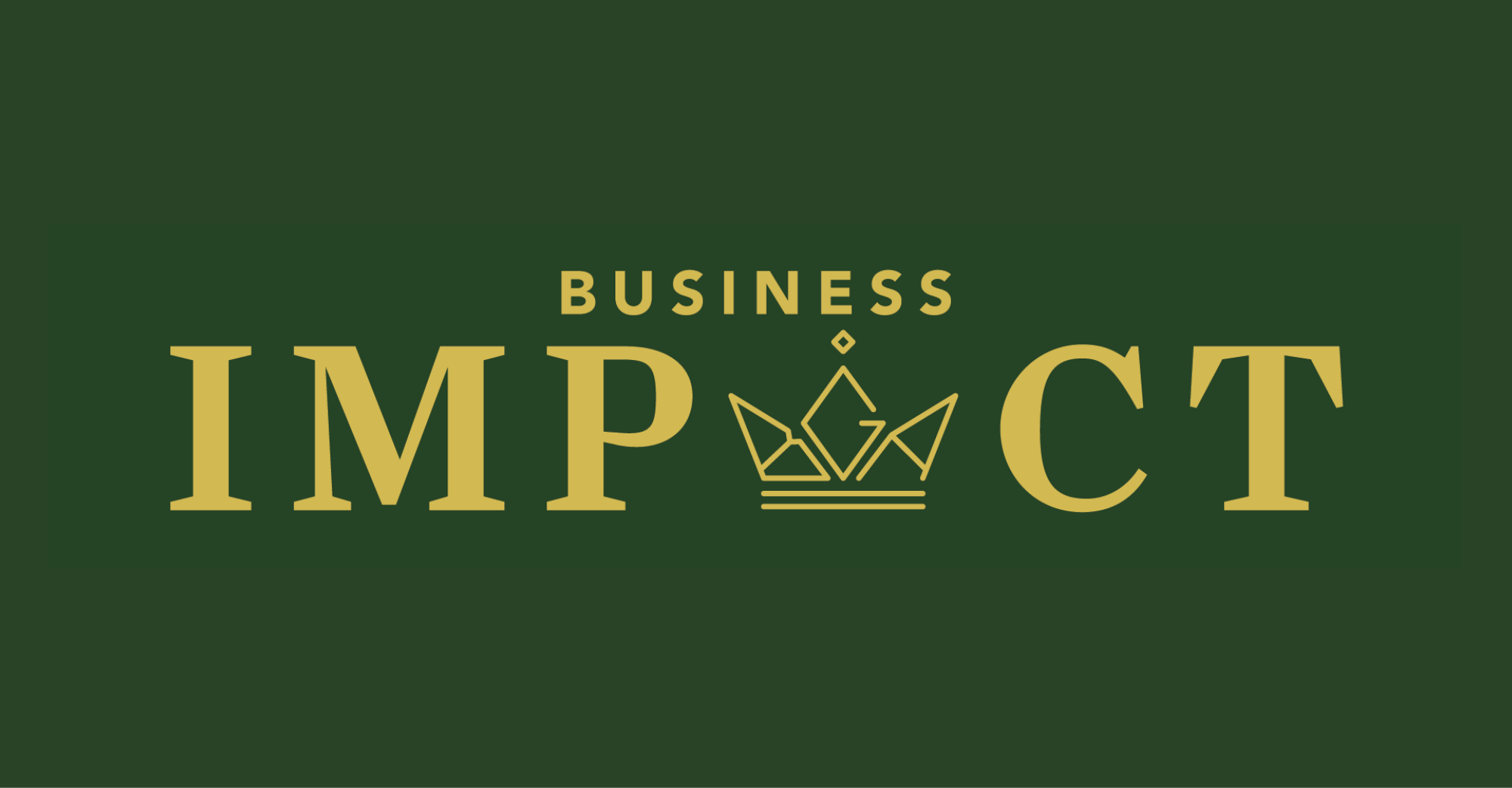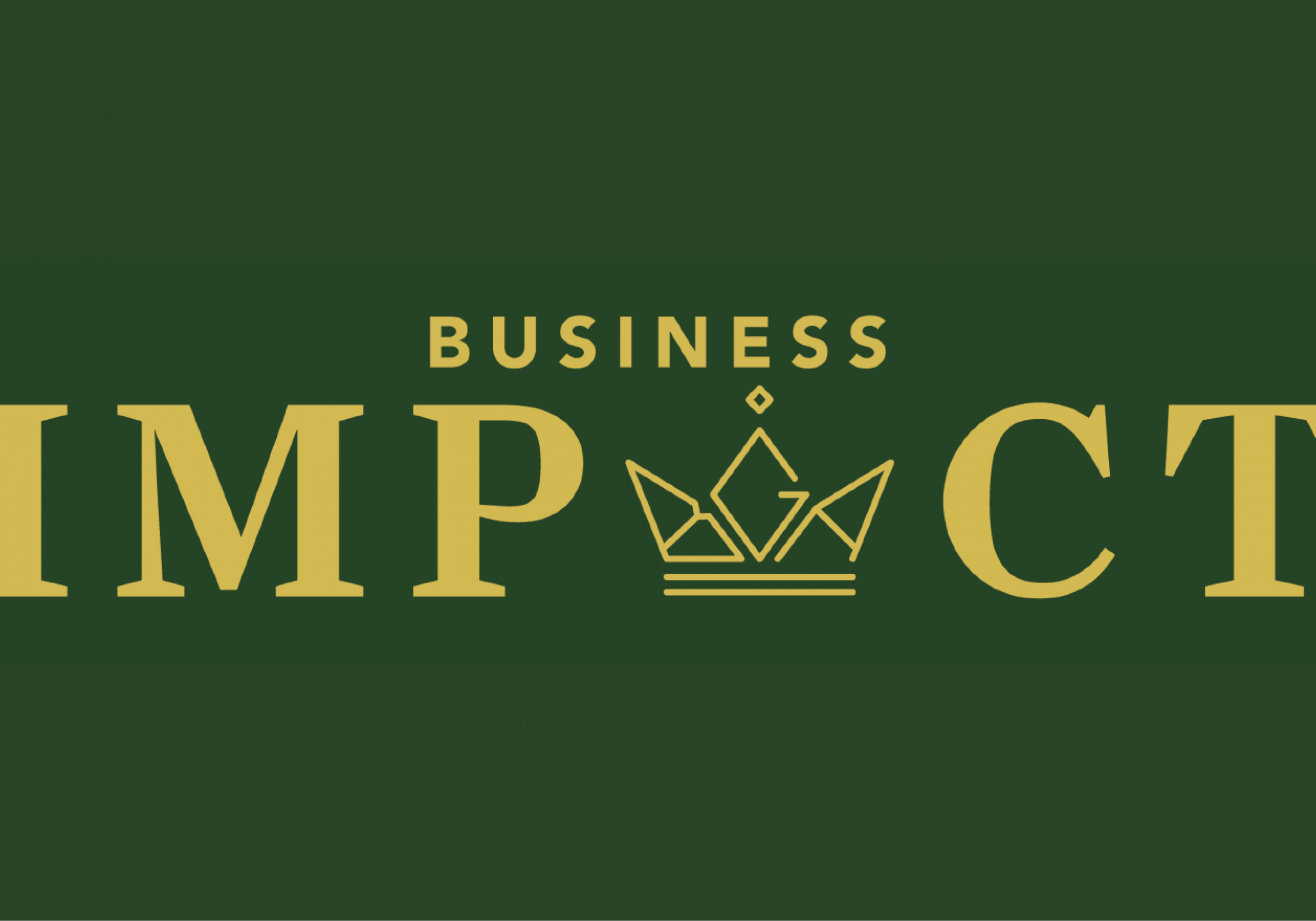You must login/create an account to view this content
Striving for the side hustle
Building a responsible and inclusive future
Developing a mindset of continual learning for the future of work and inclusive leadership will underpin the MBA at Newcastle University Business School, explains its Director and Professor of Leadership and Organisation Studies, Sharon Mavin. Interview by David Woods-Hale
You joined Newcastle University Business School during a momentous year for the School as it celebrated 30 years of AMBA accreditation. What attracted you to the organisation?
I was attracted by the stage of development of the School. It’s going through a period of growth and is expanding its presence with an additional building. It’s triple accredited and has world-class research, but at the same time there was an appointment of a new Vice Chancellor and Deputy Vice Chancellor, so there was an opportunity to join a brand new team and look at really embedding the Business School into the University and developing a vision around the future of work and leading on leadership.
I previously led Roehampton Business School, University of Roehampton, London, as Director and before that I was at Newcastle Business School, Northumbria University, as Dean and Associate Dean Research.
At Newcastle University Business School, there is an opportunity to look at an interdisciplinary approach in terms of the stage of development of the Business School. The challenge facing Schools today is to prepare students and graduates for problems that are not just around business and management; to be able to take a more interdisciplinary approach to thinking and problem solving and to prepare business, management, economics, accounting and finance students, for the future of work, when we don’t know what that future will be. The jobs they will be doing in the future don’t actually exist now.
In Newcastle, we have two national innovation centres (one in data and another in ageing) and integrating the Business School into the work of these centres is a fantastic opportunity to expose our students to further world-class research.
What do you think draws prospective MBAs to Newcastle?
When I joined the School, we were celebrating 30 years of AMBA accreditation and this is a testament to the Newcastle MBA. While it has changed and evolved, it’s still a very progressive MBA programme, which details a journey of transformation for the individual student, combined with innovative curricula, real-world interaction and the internationalisation of the programme on a global scale. For example, this year, our international study tour is to Brazil.
We welcome students who are ready and committed to a journey of personal transformation and change, and offer them the knowledge, skills, and exposure to international experiences plus international approaches to business and management.
What keeps people coming to us is a combination of our first-class reputation for academic excellence, high graduate employability and excellent student experience. It’s an all-round journey of personal transformation.
What skills do you think MBAs should be demonstrating upon graduation?
We are in an ongoing dialogue with external organisations, our advisory board, our academic team, our students and employers, asking what a Newcastle University Business School graduate and post-graduate should know, and what they should stand for.
In terms of key knowledge expectations, these would be the same as for any MBA graduate: being able to develop personal resilience; to thrive in complex and chaotic situations and those in which there is ambiguity; to make clear judgements based on information and evidence; being informed by a commitment to ethical corporate social responsibility; having a commitment to gender inclusive leadership, which will become increasingly important in our MBA; and being able to work individually and also as part of a team.
Our corporate and organisational partners are talking to us about continual learning and they want people who can embrace change and accept that the MBA is not the end – they want people who want to learn for life. This means being prepared for the future of work, but also to learn, change and adapt in order to influence, lead and shape their future and their own future careers. This goes far beyond knowledge of business and management.
How do you view ethical management?
As part of our vision, we see ourselves as a globally renowned international Business School that is building a responsible future, through our graduates and post-graduates, for both business and society globally. It’s certainly a core value of Newcastle University around sustainability and responsible management. In the MBA, we have both a corporate social responsibility module, but also a commitment to ethical behaviour and personal values running all the way through. The Newcastle University Business School post-graduate has a strong understanding of their own personal values and what they stand for.
Do we need a new metrics system to measure MBA programme success?
We would argue that there does need to be a new metrics system for measuring success, not least beyond international diversity, to include gender diversity and different elements of intersectionality for the type of cohorts we’re learning with.
From my point of view, coming in as a new Director, one of our scholarships for next year will be for a woman, who will work with us exploring gender-inclusive leadership. This will be a scholarship that signals that women are very much encouraged to join our Business School. We know that all UK Schools have a long way to go regarding ‘gender on the agenda’ in all kinds of ways, as evidenced in Athena SWAN action plans. Gender equality is a core value of mine. We want to be explicit about our commitment to gender inclusive leadership.
It’s not just about cohort size if you’re trying to bring a balance of international and gender diversity into the MBA learning environment.
As a female Business School Director, do you feel like you are trailblazing the way for other women?
I’m the first woman Director at Newcastle University Business School. In my first semester, I think I made an impact on the academic group, because colleagues see my commitment to talking openly about the gender pay gap, gender inclusive leadership or gender on the agenda in curricula. I’m not afraid to have these discussions.
I want to award a scholarship to a woman with aspirations who envisages a major transformational journey. I will be involved with that learning journey as a mentor and with the students on the programme and I’m hoping to make a positive impact.
You’ve done some work with Board Apprentice Global Scheme on diversity. Can you explain some more about this?
It’s a not-for-profit franchise that offers an immediate solution to the lack of diversity in the boardroom because it is, in effect, a development programme for people and boards to develop experience that they wouldn’t otherwise have had. Introducing diversity to company boards through an apprenticeship scheme.
I went through a selection process to become a board apprentice for a JP Morgan Investment Trust. I wouldn’t ordinarily have been in a position to have this experience. I’m in higher education, I’m from the north of England and I didn’t have any non-executive (NXD) board experience other than committees to do with higher education. I went through a selection process and joined the JP Morgan Claverhouse Investment Trust plc.
I had the privilege of observing the board for nearly 18 months and joining board activity across the different methods that it uses to govern. I engaged with the Chair of the board, other directors, the fund managers, the board business and enjoyed learning more about the financial investment sector – including the AGM and meeting shareholders.
This increased my experience of governance and knowledge as a NXD If I hadn’t recently moved into the Director role at the University of Newcastle, I’d have already applied for NXD with this new knowledge and experience and therefore offering diversity to other boards.
The Board Apprentice offers people, who don’t necessarily have the ‘right’ knowledge and experience, opportunities for development. This programme looks at diversity beyond gender and encompasses ethnicity, culture, sexual orientation, age, disability, personality and skillset. Simply by observing a board, an apprentice can change the dynamic within it. Through the chair, I was able to ask questions of the board offline to help understand and refine my own decision making. Having a board apprentice is a positive, committed action and adds to the diversity of established thinking within boards and increases the pool of people who are able to apply for NXD positions.
I also met with the London Higher Group of Universities which has started a board apprentice journey. It’s working with corporate organisations, enabling people from universities to become NXDs and their councils and senates are engaging with board apprentices from the corporate sector. Universities require diversity on their senates and councils in the same way that FTSE firms do. Universities are not exempt, but it can be very challenging to reach outside the University community, to get the diversity you need.
Board apprentice programmes build a pipeline of people who are ready for their first board position. Because of my subject area, I’d never worked in the finance sector in that level of depth and the opportunity allowed me such a good exposure to the sector, which benefited my own personal development.
Do you think there’s still too much talk and not enough action on gender inclusive leadership?
Up until about six months ago, I would have said ‘absolutely yes’, but I think now, we’re hitting a tipping point of what has been acceptable and what’s not. This might be around the gender pay gap, sexual harassment, and the gendered representation in the media of women leaders – which has a major impact on socialising future leaders.
The media shows Hilary Clinton or Theresa May as powerful women leaders, but are talking about what they wear or how they look. This is being challenged and becoming unacceptable. The backlash to the US presidency race will also be a part of the tipping
point I’ve just described. People are becoming more comfortable with calling out gender discrimination.
You cannot be what you cannot see. We want students to think more critically about what they see when they see leadership images and how leaders are portrayed around them; some of these messages are so normalised, they don’t realise how sexist they are.
One of my key next steps is to consider how to develop gender-inclusive leadership with men and women students, because change is not just the responsibility of women.
Our students are letting us know when they see men-only guest speakers or panels and expect to engage with leaders and entrepreneurs of both genders. I use the term ‘gender inclusive’ because we need to pull the models apart, so everyone can relate to the terminology.
Do you feel optimistic about the future of Business Schools and business education?
I feel very optimistic about business education that understands what we have to do now and in the future and is different to what we’ve done in the past.
Providing personal development journeys that engage with the whole person rather than comprising knowledge transfer is a fantastic opportunity.
From our point of view, in our School, we’ll be educating and developing for the future of work and leading on leaders for a future we can shape – this is a positive way of looking at massive change, continually.
How do we prepare people to engage and learn in an unknown future of work
This will be about developing the knowledge, skills, values and open mind sets for a future we don’t even know yet.
That’s a challenge I’m excited about.
Surviving and thriving in your post-university life
Creating a beacon of culture in the darkness of war
Comfortably numb: the peril of a plateau
A plateau in business is really an invisible state of decline, unwittingly fuelled by those at the top. Leading out of it involves innovation, transparency, values-led decisions and sustainability, argue Khurshed Dehnugara and Claire Genkai Breeze
‘Hello… Is there anybody in there? Just nod if you can hear me. Is there anyone at home?’
Does the above quote from Pink Floyd’s hit Comfortably Numb ever resonate with you and your workplace?
We have defined this comfortable numbness as a ‘plateau’: when a business or economy reaches a certain point in its growth trajectory and, while not failing, has become stagnant.
Putting this into the context of a natural metaphor, a stagnant pond cannot support life; it is dying, poisoned, unhealthy and toxic. In short, both metaphorically and literally, the plateauing, stagnant organisation could be toxic as well.
Crisis versus plateau
Companies, operating in the volatile ‘new normal’ of the business world will face crises, opportunity, highs and lows. Threat is a now a constant reality and, as a result, businesses are becoming increasingly proficient at managing through crises.
In the short term, at least, crises can generate positive opportunities.
They bring a degree of drama which energises the leadership population and galvanises entire workforces into action. This crisis mentality can engage teams and spur their inner heroes, mobilising them into fight-or-flight mode, where the adrenaline is pumping and making them feel good about themselves. This often leads to great results. For the short term.
For most businesses today, however, there are the plateaus; businesses are failing to achieve growth. Many of these organisations remain in this state, with their only response being to keep generating modest profits through cutting costs; for instance, achieving a 0% sales growth but 2% or 3% profit growth each year, which keeps the city happy and the board and the all-important shareholders satisfied. There is no profit warning, so no real problem, right? Wrong.
This cost-cutting phenomenon is nothing more than a metaphorical anaesthetic, numbing the pain, dulling the ache, keeping the proverbial wolves from the door – but it is lobotomising the business of the innovation, creativity or passion it desperately needs.
Its people – and leaders – are internally dissatisfied; they see no way through this fog. They are comfortably numb.
This is a financial plateau. Often underneath this is a cultural plateau – in which employees are bumbling along in silos, disengaged and counting the minutes until home time. There may also be a leadership plateau – an habitual state of not focusing attention on real change and, quite simply, not feeling the need to.
Plateaus produce a compelling, but largely unconscious, dominant logic in the minds of leaders as well as employees. This creates a perceived safety zone between the pendulum swing of modest profits and cost cutting.
However, beneath the financial plateau is a plateau of the imagination.
In this instance, people in the organisation cease to be able to imagine another way of doing things, or a place of business where purpose, boldness, creativity and innovation lie at the core of the culture and are not the exception.
The cultural and leadership plateaus that cause, and result from, this failure of imagination are a threat to vitality, invention and wellbeing. They create a workforce of comfort seekers and cynics; they create an illusion of activity when really the business
is engaged in a sophisticated game of killing time.
Killing time for what? Killing time until employees can reach the top of the organisation, pay their mortgages, achieve promotion or just pluck up the courage to leave their job and focus on something that would genuinely engage them. If these feel like strong and unpalatable statements, they need to be. A plateau is really a decline.
The trouble with crises
It is easier to strategise around a crisis than a plateau because there is a consolidated and absolute focus on getting a problem sorted. A crisis is often more about recovering after a difficulty rather than maintaining or sustaining growth.
A case in point is Samsung. In October 2016, just weeks after launching its flagship smartphone, the Galaxy Note 7, the company had to recall more than three million devices after reports of overheating and exploding batteries. One clever PR strategy later and some Samsung super fans are still holding on to their Note 7s despite the risk. Given strong customer satisfaction with the product line, plus loyalty to other Samsung products, this customer base looks set to put the Note 7 fiasco behind it quite quickly.
Another example is Volkswagen. According to Harvard Business Review, less than two months after a scandal broke around Volkswagen cars’ high emissions in 2015, German consumers were already ready to forgive the company and look past its transgressions In a national survey, 65% of respondents believed that Volkswagen still built outstanding cars and that the emissions scandal was overblown. Less than a year later, the company had returned to profitability.
There is strategic merit in distinguishing crisis from plateau.
During a crisis, businesses experience the behaviour from their people that they would expect all the time: excitement flares up, employees shine, and then, as quickly as it sprang up, this enthusiasm fades away.
Businesses generate a lot of discretionary effort in crises; lots of high-level communications, collective responsibility, increased collaboration, more truth telling, more focus on customer, very high levels of support and a ‘can do’ attitude.
But some organisations ‘manage by crisis’ all the time due to the misguided belief that this management strategy keeps people mobilised. The tragic reality is that this is neither helpful nor sustainable over the long term. In fact, this type of initiative will run out of potency fast and, if leaders declare a crisis every few months, then the impact of it declines over time.
Boom and bust
Considering the logic of organisational history, companies in the past would typically move through a cycle of massive change, steady state, then massive change, then steady state. The aim was to get through these waves as efficiently as possible and businesses became experienced at catching up and repairing gaps, to return, eventually, to where they wanted to be. Corporates that were good at change management were celebrated, but change management sometimes equates to nothing more than an illusion to keep people active, productive and focused.
The low-growth environment of the past decade has partly contributed to an acceptance of plateaus in productivity and growth. But a plateau is a long burn; an unseen issue within the business that can be easily disguised. It is a major challenge, but it is insidious because its damage will only be noticed when measured over a long period.
A well-supported decline?
We’re going to throw a spanner into the works here, because after defining the plateau, we want to argue that the plateau doesn’t, in fact, exist. It is an artificial state of mind.
If the only way business leaders can generate any positive results is through cost cutting, then their business, essentially, is not plateauing. The ‘plateau’ is nothing more than an invisible state of decline – unwittingly fuelled by those at the top. It is an illusion – a cloak of artificial buoyancy that props up a lack of positive activity.
So, with that in mind, our definition of what has commonly been described as a ‘plateau’ in corporate life is, perhaps more appropriately, ‘a well-supported decline’.
This decline occurs when organisations stop challenging their limiting assumptions or constraints. They’re creating results through deficit rather than innovation and, in a psychological era of austerity, it’s understandable how this subconsciously unfolds within business.
The hollowing effect
If businesses continue in this stasis for long enough, they become hollow.
Their core values, purpose, culture is removed and this often manifests itself through people movement.
Senior executives typically remain in a role for no more than three or four years; they simply become part of the hollowing mechanism coming to believe ‘cost cutting is what we do here’.
In large organisations, whole generations of leaders often leave within months of each other, simply because they’re unable to shift or lead the business away from decline. In other words, instead of companies making difficult changes or hard decisions, leaders who don’t make a difference are moved on.
As a result, these businesses don’t disappear – the cycle merely starts all over again. Leading a business in a state of gradual decline is much harder work than leading a business through a crisis. Some leadership teams are ‘relieved rescuers’ when a crisis comes along, adopting the mentality ‘right we know what we are doing here, let’s roll up our sleeves and get on with it…’
Leading through a crisis
Waking up the organisation up in a crisis is easy – you don’t need to tell people too much about it as they usually already feel the heat from the metaphorical flames. The clichéd burning platform is screaming at you so there little analytical is skill required to diagnose the challenge ahead.
Crises respond well to the traditional hierarchy of status and power. Leaders want people to act immediately without too much deliberation when a command is given. So, divide up the tasks between the team, project manage, communicate quickly and regularly, and make sure everyone knows where you are up to by establishing crisis management teams for employees outside of their day-to-day work.
The leaders’ role is often to act as a container around the crisis in a bid to stop panic, keep calm and project an in-control image. The brief is to make the difficulty go away, recover and return to order with perceptions of security, as quickly as possible.
Leadership energy during a crisis is characterised by endurance: grit your teeth, get through it even if you have to collapse on the other side. This is one of the reasons that it isn’t a sustainable, long-term strategic choice.
Leading out of a ‘plateau’
Waking the organisation up to a well-supported decline, a ‘plateau’, is an altogether subtler act. It is an act of observation, looking differently at what is reality rather than what we imagine it or wish it to be.
This is an act of courage and responsibility; a process of leaders being comfortable with their vulnerability and saying ‘we don’t know’. The diagnosis here is mostly about identifying and surfacing the repeating patterns of behaviour that are keeping the business stuck and circular in its leadership activities.
Leadership action in a ‘plateau’ has an experimental nature to it: trial and error, probing, testing and learning; finding some data and bringing it back to the table for examination. It involves applying all of the organisation’s efforts to the day-to-day work, and not separating from it through analyses. The day to day is where the insidious patterns exert themselves and where they need to be disturbed.
Authority at this time emerges from how the system organises itself around the leader, how the individual is connected to others and how much they trust in their team, the culture and the corporate vision. This is because new performance needs leaders to disrupt the system and to disturb it first. After this, a leader needs to take a stand to achieve breakthroughs, bearing in mind that this tactic may be received by the establishment as something ridiculous that feels ‘out of sync’ with the way the business is currently tracking.
Leaders in a plateau display anxiety in a different way to what is needed in the crisis. They put themselves at risk, but at the same time need to create a sense of psychological safety so that others will want to step out and join them on the precipice. They must quickly become experts in dealing with disappointment, loss of hope, resignation, and perhaps most importantly, resisting invitations to return to the past.
Conclusion
So, in short, do we live in a business world led by people who love a crisis but are so comfortably numb the rest of the time that they embrace a plateau with open arms?
In terms of energy and ongoing momentum, anything that looks like a straight line on the balance sheet is actually a decline. The flat line causes a decline in energy, expectation, imagination, belief in possibility and desire. Over time (and perhaps unnoticed) all the people with any energy and purpose start to leave.
Those with more of a personal investment in the organisation will stay until their own needs are met, but ultimately the effect on the overall organisational system is one of intransigence and self-justification.
Austerity is the fiend that appears to be the friend of growth – when the real solution to leading from plateau to profit is innovation, transparency, values-led decisions and sustainability.
Retaining leadership energy in a plateau has a different feel to leading through growth or indeed crisis. And, if you’re reading this and you feel comfortable in your business performance, you should ask yourself if this is, in fact, merely a placebo effect of numbness?
Shouldn’t we, as leaders, always be uncomfortable? If not, how can we possibly be agile enough to innovate perpetually?
Now is the time for leaders to be savvy, strategic and take a sustainable, long-term view. Great plateau leadership will ebb and flow and leaders need to know when to rest and when to up the intensity.
But the challenge must be moderated by encouraging teams and peers, in order to keep up the momentum – because the cloaked nature of the plateau can make the finishing line seem a long way away.
Khurshed Dehnugara and Claire Genkai Breeze have been Partners at Relume Ltd. since 2000. Specialists in coaching senior executives to be challengers of the status quo, their clients are listed corporations worldwide.
They are authors of The Challenger Spirit – Organisations That Disturb The Status Quo (2011) and Flawed but Willing – Leading Large Organisations In The Age of Connection (2014).
























































